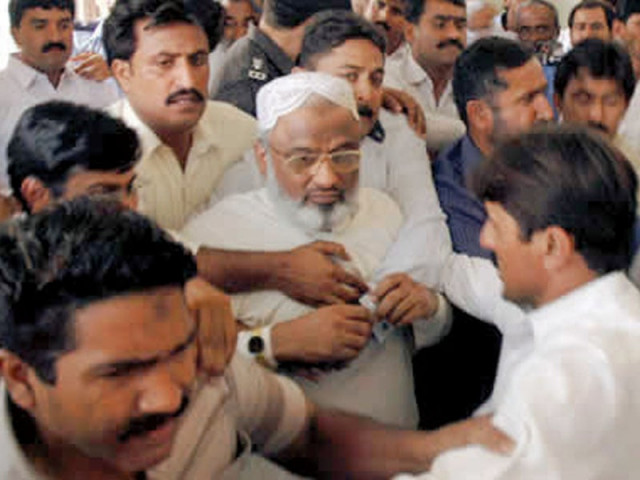Court reserves judgment in Arbab’s dismissal petition
The Sindh Assembly removed the former CM as he had not attended the sessions since 2008.

Court reserves judgment in Arbab’s dismissal petition
Rahim was voted out of the Sindh Assembly because he had failed to attend 40 consecutive sessions of the house of elected representatives. He has been living outside Pakistan since 2008.
His son Arbab Inayatullah filed the petition to challenge the Sindh Assembly’s decision.
On Thursday, Justices Munib Akhtar and Syed Hasan Azhar Rizvi heard Rasheed Razvi, who is representing Arbab Inayatullah, the petitioner. It also heard a battery of lawyers defending the Sindh government such as Sindh Advocate General Abul Fattah Malik and additional advocates general (AAG), including Sarwar Khan.
Razvi relied on a number of case laws in his arguments to rebut the government’s stand that the Sindh Assembly proceedings were immune to being challenged in court.He said that if any question of interpretation arose, the courts did have the jurisdiction. “If any act of parliament or an elected house is illegal or unconstitutional, the courts can scrutinise them,” he submitted, in reply to a query by the court.
“The respondents are seeking immunity on the grounds that it was a case of procedural irregularity and thus the court cannot interfere under the ouster clause (ousting jurisdiction),” the bench stated, asking the counsel to address “what will happen if unconstitutionality and illegality stems from a procedural irregularity”.
Razvi replied that in the case of acts which are prima facie, mala fide and deemed in violation of the rules of procedure, the high court has the inherent power under Article 199 of the Constitution to exercise its jurisdiction.
Razvi argued that according to the assembly’s rules, Rahim’s request for leave should have been placed before the house during each session and not clubbed together as they were in one go. “Placing Rahim’s applications before the house as accumulated ones was not merely an irregularity, but also in violation of the Sindh Assembly’s rules of business,” he said.
He argued that while the assembly unseated the former chief minister for remaining absent, no action had been taken against Khanum Ruqaiyya Soomro from the ruling Pakistan Peoples Party (PPP) and MPA Lal Chand even though both of them had been absent for four years.
Razvi said that action was taken against Rahim when he asked for the opposition leader’s seat. “My client’s refusal to support PPP candidates in the Senate elections proved to be decisive and the ruling party moved swiftly to unseat him,” Arbab’s lawyer claimed.
In response, AAG Sarwar Khan said that none of the case laws stated by the petitioner’s counsel were relevant and applicable in this case, which was “different from others”. The assembly decided to unseat Rahim through a majority vote as he had been absent for 40 consecutive days, he added.
The bench asked both sides to submit a synopsis of their arguments in writing within 10 days. It then said it would announce its judgment later.
The court ordered that the interim order, which stops the Election Commission from declaring vacant Rahim’s seat, will remain in force until orders are passed on the petition.
Published in The Express Tribune, May 25th, 2012.



















COMMENTS
Comments are moderated and generally will be posted if they are on-topic and not abusive.
For more information, please see our Comments FAQ